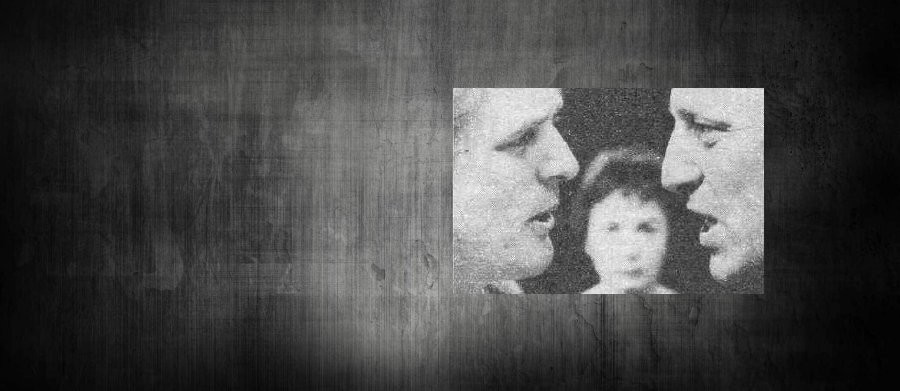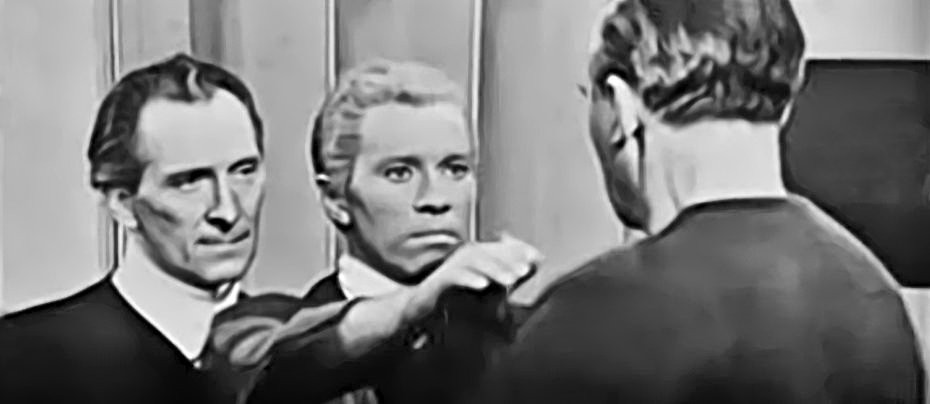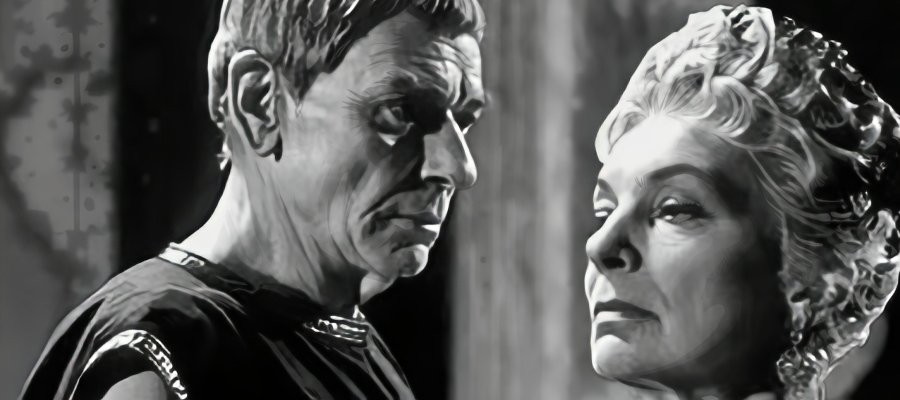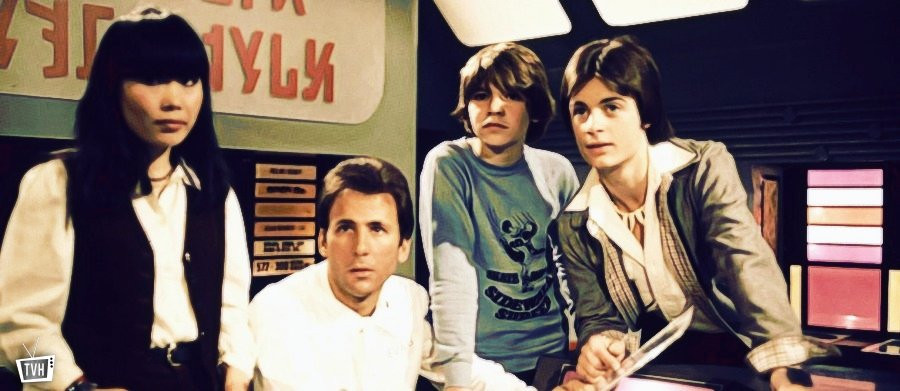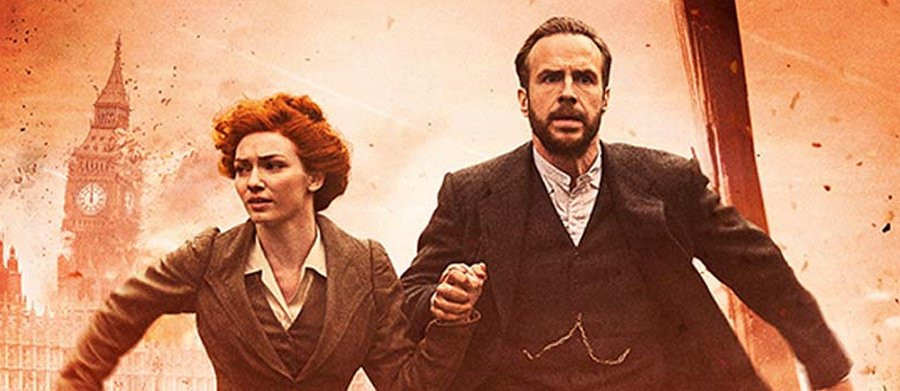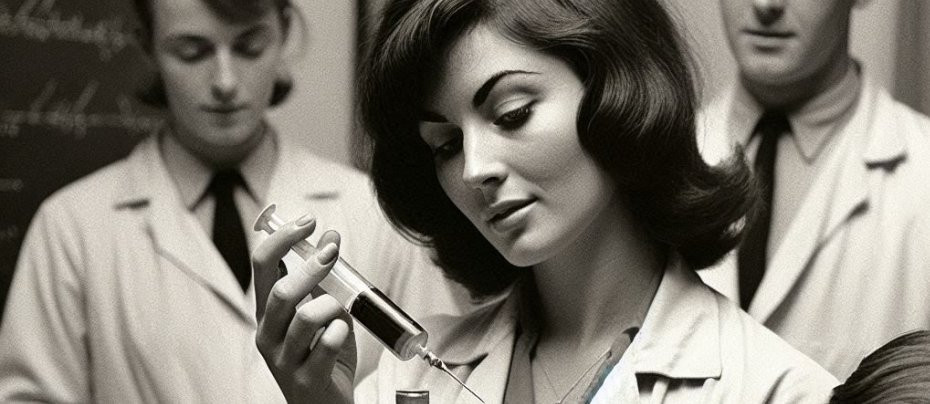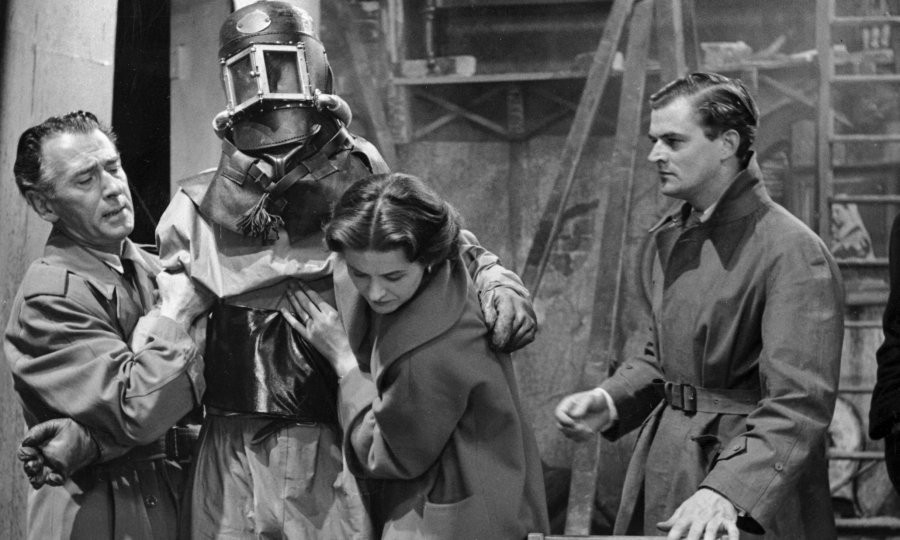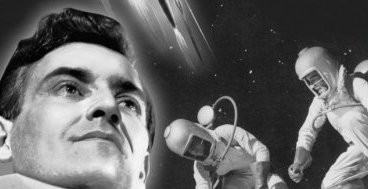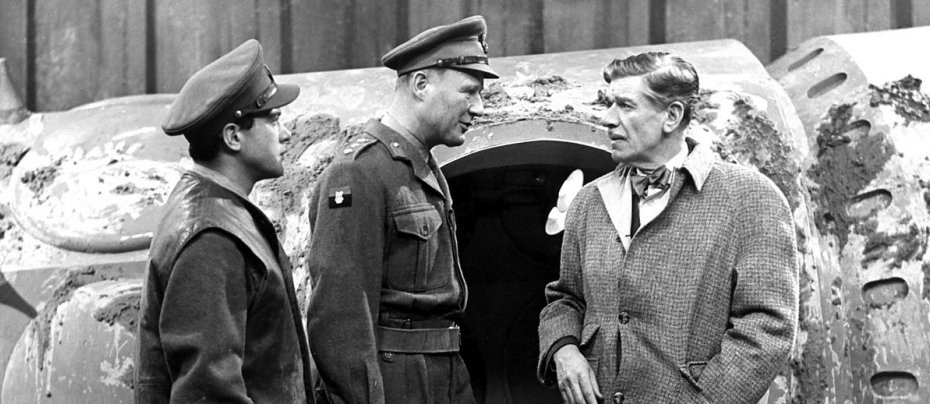
Quatermass and the Pit
The Quatermass Experiment saw the Earth under threat from space. Quatermass II revealed the invasion was already underway. Quatermass and the Pit takes the threat back far further, and reveals that our world was successfully invaded over five million years ago.
The most popular, and perhaps the best, of the Quatermass serials, Quatermass and the Pit is an altogether more sophisticated television production that its forebears. The stagy feel of the previous two stories is replaced with a more cinematic feel. The production is slicker right from the start - the graphics clearer and bolder, the music stirring and brisk, the enclosed environs and awkward film work of the earlier productions replaced by extensive location work. A large incidental cast appear throughout, moving in open spaces and extensive sets. The improved techniques of television production, and the greater confidence that goes with it, is clear from the outset. Made just a few years after Experiment, this feels like a far more modern serial.
Another aspect that is clear from the outset is the potent message behind the story. Quatermass and the Pit is a very angry piece of work, written by a man who is evidently disgusted by the human condition. There's a strong anti-violence message coming through straight away, with news stories of race riots and terrorism heard over the radio as work continues on Hobb's Lane. For all the circumstantial evidence that this story is set some time into the future, the shadow of World War II hangs over everything. Throughout, the 'Jerries' are to blame for causing trouble, people still speak of the Blitz (even if they make out they were children at the time), and the mysterious object at the bottom of the pit is assumed to be a German bomb. The War was still only thirteen years over for the audience, and its enduring influence is inescapable.
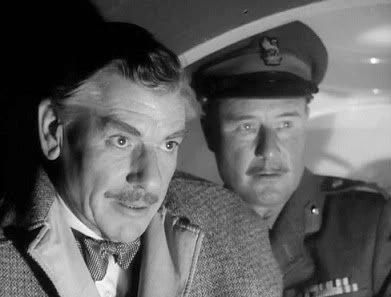
Into this world of violence steps Quatermass, this time portrayed by Andre Morell. As the fourth actor to take on the role (after Reginald Tate, John Robinson and movie Quatermass Brian Donlevy), Morell must have faced stiff competition in making his version of the character memorable. He succeeded admirably, and is considered, by many, to be the definitive Quatermass (I myself am undecided). His version of the Professor is a somewhat posh, but with little arrogance. He's a touch eccentric, less straight-laced than earlier versions, but unmistakeably intelligent, forthright, creative and highly moral. It's unsurprising that Quatermass is so incensed to see his baby, the British Experimental Rocket Group, turned over to the military. This is an optimistic vision of British technological development, with Quatermass's designs evidently so watertight that a moonbase is said to be a certainty within "five to seven years." Clearly, saving the Earth from invading ammonids did wonders for his funding. Nonetheless, the government now wants to take it out of his hands and into those of the military, for use in constructing the ultimate deterrent weapon; perhaps the only thing that brings this story away from WWII and into Cold War territory. The Rocket Group was created for peaceful exploration, demands Quatermass; considering that he used his last rocket to blow up an asteroid full of intelligent aliens, it's not too surprising his arguments fall on deaf ears.
Nonetheless, having him paired up with his deputy (read "replacement"), Colonel Breen, is a treat. Played with aplomb by Anthony Bushell, Breen is a perfect foil for Quatermass. A career soldier, Breen is authoritarian, arrogant, quick to anger and not used to having his arguments countered. Nonetheless, he is a good man, dedicated to keeping the peace in Britain, even if it puts him at odds with his colleagues. He is simply unable to deal with the world he discovers here, unable to accept the evidence of his own eyes and forced to resort to desperate self-delusion to overcome his fear. Completing the trio of lead characters is Cec Linder as Dr Matthew Roney, a colourful, charismatic Canadian scientist. Leading the operation to remove and analyse the fossil remains found in the Hobb's Lane site, he's a poster boy for popular science, eager to engage the press and full of seemingly crackpot ideas. How many other palaeontologists have a sideline in experimental neuroscience, and could build an "optical encephalogram" in their spare time? It's indicative that, with a supposed unexploded bomb revealed in the dig, and with bomb disposal experts all around, Roney's immediate thought is to fetch the head of the British Experimental Rocket Group - he'll know what to do!
It's good to see Quatermass's journalist ally, James Fullalove; sadly not played, as in Experiment, by Paul Whitsun-Jones, although Brian Worth does quite well. Christine Finn is the obligatory female assistant, Barbara Judd, adding a much needed female presence, who gets the opportunity to be at the centre of the psychic turmoil that surfaces with the mysterious capsule. John Stratton is sympathetic as Captain Potter, while Robert Perceval is both reasonable and infuriating as the closed-minded Minister. However, the serial belongs to Quatermass, Roney and Breen, and the interplay between them. Breen is exasperating at times, seemingly unable to accept what's in front of him, but let's look at things from his point of view. An object is dug up which can surely only be a missile of some kind, but two scientists keep banging on about aliens, ape men and demons. We know that Quatermass is right, but even with full knowledge of his previous discoveries, he must seem like a crackpot. He does, after all, go seeking out ghost stories around Hobb's Lane even before he has any real inkling that there's an extraterrestrial psychic force there. Roney's even quicker to jump on the occult, seeing pentacles everywhere. By the time the capsule is finally opened up, and the remains of three aliens are revealed, he's already convinced himself of a rational explanation, and the sudden evidence against this is simply too much for him.
The third serial has solved the pacing problems of its immediate predecessor, moving along steadily throughout its six episodes, consistently revealing new elements to the plot. Every episode ends with a cliffhanger that makes us question what we've already learned. In "The Halfmen," we learn first of the impossibly advanced ape remains found in the pit, then the unknown capsule, and finally, Quatermass points out the paradox - the fossils are above the capsule. In "The Ghosts," tales of hauntings are linked with the area, and phantoms start to appear around the dig. In "Imps and Demons," we discover that the capsule has unearthly properties that effect those around it, and then the front compartment is opened, revealing the remains of alien lifeforms. "The Enchanted" reveals the full power of the capsule, sending the serial into the realms of genuinely chilling horror; primitive though the effects are, it was the earth shifting beneath the wildly overacting workman's body that got me. "The Wild Hunt" explores the truth of the alien influence on human development, and ends with the capsule being charged with electricity, in a convenient "accident." Finally, "Hob" is essentially a single stretched-out set piece, a storm of terror as the alien influence takes over and begins to manifest.
Nigel Kneale here provides a reasonably plausible explanation for the more vicious side of human nature, revealing the truth behind various supernatural phenomena along the way. Human evolution was advanced by alien creatures attempting to breed a replacement for their own dying species. Ancient sightings of goblins, ghosts and hobs were in fact projections of the apelike "halfmen" that once walked the Earth. The horned face of the Devil was inspired by the almost human-like head of the alien creatures with their insect antennae. Psychic powers are the residue of inhuman inheritance. The alien themselves are of a magnificent design, fusing insect-like structures with a weird tripod layout, and given a demonic visage and just a touch of humanity in their faces. Seemingly from the now dead planet Mars - although it has to be said that Quatermass never has proof of this - the aliens are a fascinating and repulsive creation. As the Minister says, the idea that "we owe our human condition to the intervention of insects," is deeply unsettling. While today there abound pseudoscientific ideas of alien intervention in mankind's evolution, they are almost invariably in the "Chariots of the Gods" mould, with great celestial beings raising us up. Here, the alien influence is horrific, and has cast us down to less than we once were.
The serial ends with a lengthy speech from Quatermass, seemingly addressing the nation, perhaps the world, on live television. One can wonder how the world would change after such a broadcast. "We are the Martians," he says. "If we cannot control the inheritance within us, this will be the second dead planet." While Quatermass talks of Martians, Kneale is using them as a metaphor for the darker side of humanity. If we could blame our violent, intolerant impulses on alien interference, it would be all the better, for we have no such excuse.
Read Daniel's review of the 1967 film adaptation here.
Published on February 21st, 2019. Written by Daniel Tessier (January 2012) for Television Heaven.


